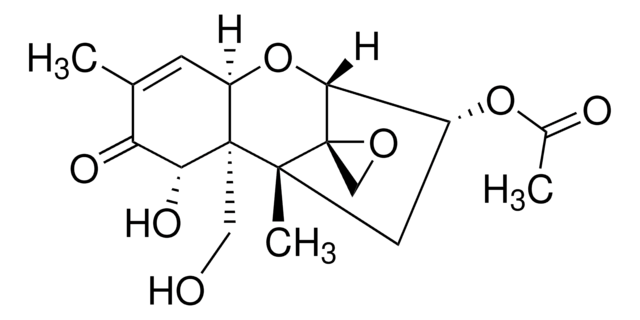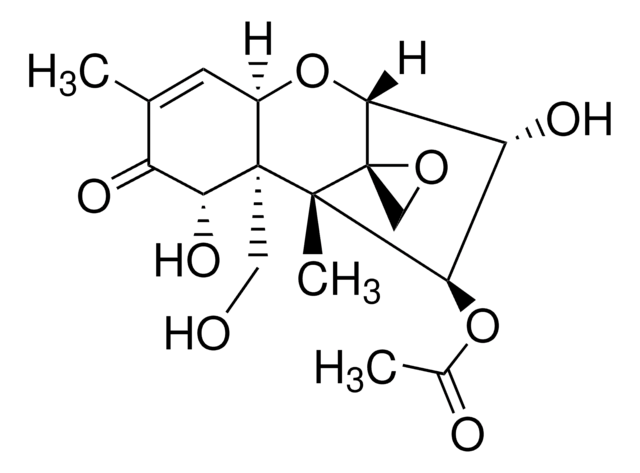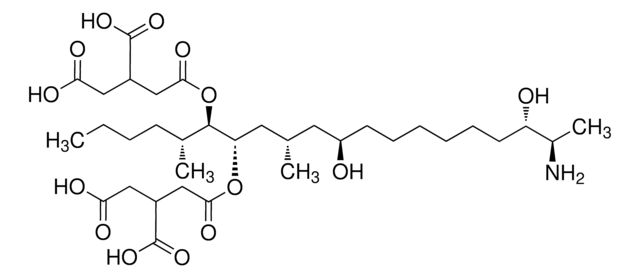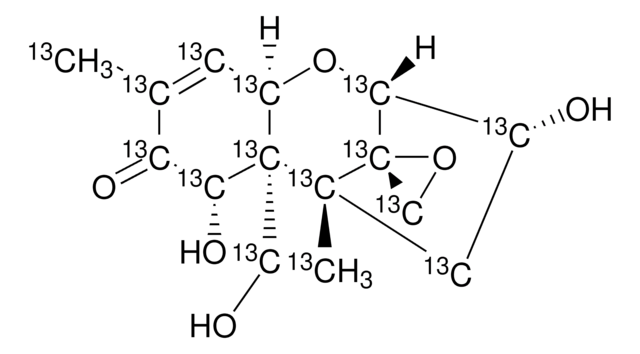A6166
3-Acetyldeoxynivalenol
from Fusarium roseum
Synonym(s):
3α-Acetoxy-7α,15-dihydroxy-12,13-epoxytrichothec-9-en-8-one, 3α-Acetylvomitoxin, 3-AcDON
About This Item
Recommended Products
biological source
Fusarium roseum
Quality Level
form
powder
storage temp.
2-8°C
SMILES string
[H][C@]12O[C@]3([H])[C@@H](C[C@@](C)([C@]34CO4)[C@@]1(CO)[C@H](O)C(=O)C(C)=C2)OC(C)=O
InChI
1S/C17H22O7/c1-8-4-11-16(6-18,13(21)12(8)20)15(3)5-10(23-9(2)19)14(24-11)17(15)7-22-17/h4,10-11,13-14,18,21H,5-7H2,1-3H3/t10-,11-,13-,14-,15-,16-,17+/m1/s1
InChI key
ADFIQZBYNGPCGY-HTJQZXIKSA-N
Looking for similar products? Visit Product Comparison Guide
General description
Application
Signal Word
Danger
Hazard Statements
Precautionary Statements
Hazard Classifications
Acute Tox. 2 Oral - Acute Tox. 3 Dermal - Acute Tox. 3 Inhalation
Storage Class Code
6.1A - Combustible acute toxic Cat. 1 and 2 / very toxic hazardous materials
WGK
WGK 3
Flash Point(F)
Not applicable
Flash Point(C)
Not applicable
Personal Protective Equipment
Choose from one of the most recent versions:
Certificates of Analysis (COA)
Don't see the Right Version?
If you require a particular version, you can look up a specific certificate by the Lot or Batch number.
Already Own This Product?
Find documentation for the products that you have recently purchased in the Document Library.
Customers Also Viewed
Our team of scientists has experience in all areas of research including Life Science, Material Science, Chemical Synthesis, Chromatography, Analytical and many others.
Contact Technical Service










